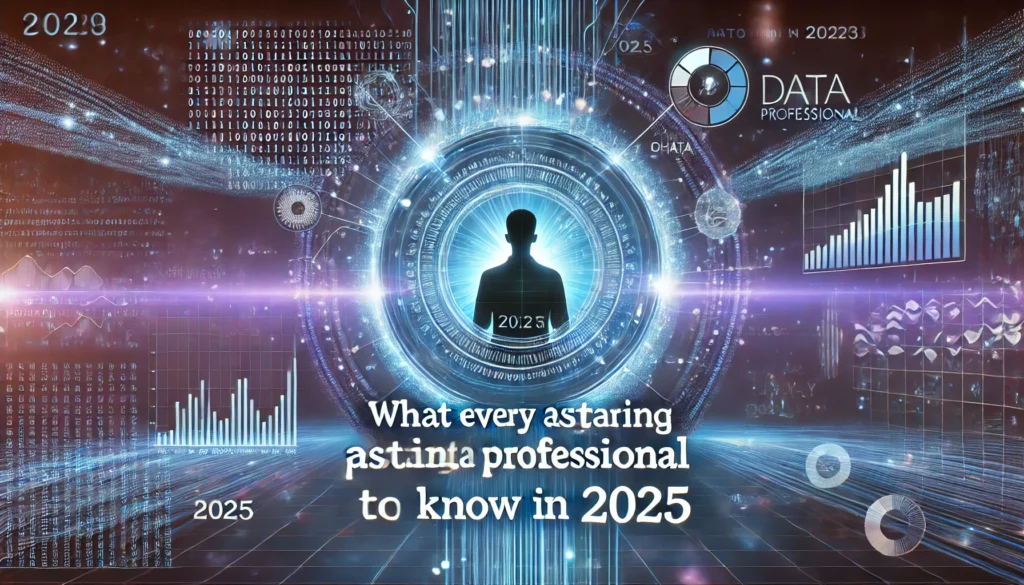
The integration of AI in data analytics is reshaping the industry at an unprecedented pace. As automation takes over repetitive tasks and algorithms become more sophisticated, aspiring data professionals might wonder: Where do I fit into the future of data science? The answer lies in complementing AI’s capabilities with human ingenuity. To thrive in 2025 and beyond, it’s crucial to understand the evolving role of AI in data analytics, embrace essential tools, and cultivate skills that set you apart.
Staying Ahead of AI with Critical Thinking
AI in data analytics is an enabler, not a replacement. While AI can automate processes like data cleaning, pattern recognition, and predictive modeling, it relies on human oversight for strategic direction and decision-making. The ability to think critically, contextualize data, and ask the right questions is a uniquely human skill that machines cannot replicate.
For example, an AI model might identify anomalies in sales data, but it takes a skilled analyst to determine whether those anomalies result from external market trends, operational inefficiencies, or seasonal shifts. Staying ahead of AI means sharpening problem-solving, analytical reasoning, and domain expertise.
AI as a Tool for Efficiency
Rather than viewing AI as a threat, think of it as a tool that amplifies your efficiency. Tasks that once consumed hours – such as data preprocessing or trend detection – can now be handled by AI-powered platforms in minutes. This allows data professionals to focus on higher-value activities like crafting actionable insights, designing experiments, and influencing business strategy.
For instance, tools like Tableau augmented with AI or Python libraries like TensorFlow make implementing advanced analytics workflows easier, even for those with limited coding experience. However, the tool is only as effective as the person wielding it.
Current AI Trends Affecting Data Analytics Roles
In 2024, several AI trends are influencing data analytics roles:
- Generative AI for Data Insights: Tools like ChatGPT or Google Bard are assisting analysts by generating reports, summarizing findings, and offering exploratory data analysis.
- Automated Machine Learning (AutoML): Platforms like DataRobot and H2O.ai simplify model creation but require experts to evaluate outcomes critically.
- AI-Driven Predictive Analytics: Businesses increasingly rely on AI for forecasting customer behavior and market trends.
- Natural Language Processing (NLP): Analysts now leverage AI to analyze text data for customer sentiment, brand monitoring, and more.
Essential AI Tools for Data Analysts
Aspiring data professionals should familiarize themselves with these essential AI tools:
- Power BI & Tableau: For AI-enhanced data visualization and insights.
- Python & R Libraries: TensorFlow, PyTorch, and scikit-learn for machine learning workflows.
- Google Cloud AI & AWS Machine Learning: Cloud-based platforms for scalable AI solutions.
- AutoML Tools: RapidMiner and H2O.ai for streamlined model building.
- Big Data Platforms: Apache Spark with integrated AI for large-scale analytics.
Skills That Remain Crucial Despite AI Automation
Even as AI automates many tasks, these skills will continue to be indispensable:
- Critical Thinking: To ask meaningful questions and interpret AI-generated insights.
- Domain Knowledge: Understanding the industry context to apply analytics effectively.
- Data Storytelling: Communicating insights clearly and persuasively to stakeholders.
- Ethical Considerations: Ensuring fairness, transparency, and accountability in AI models.
- Collaboration: Working across teams to integrate AI solutions with business needs.
Future-Proofing Your Data Analytics Career in 2025 & Beyond
To stay relevant in the future of data analytics, focus on:
- Lifelong Learning: Stay updated on AI trends, tools, and techniques through certifications and courses.
- Hybrid Skillsets: Combine technical skills like coding with soft skills like leadership and communication.
- Networking: Engage with industry peers to exchange knowledge and opportunities.
Conclusion
The future of data analytics is bright, but it demands a balance between leveraging AI and nurturing human expertise. By understanding how AI enhances, rather than replaces, your role, you can carve out a meaningful and impactful career path.
Ready to build your AI-integrated data analytics skillset?
Explore our programs designed to help you master AI tools and future-proof your career. Visit Bictors to learn more!